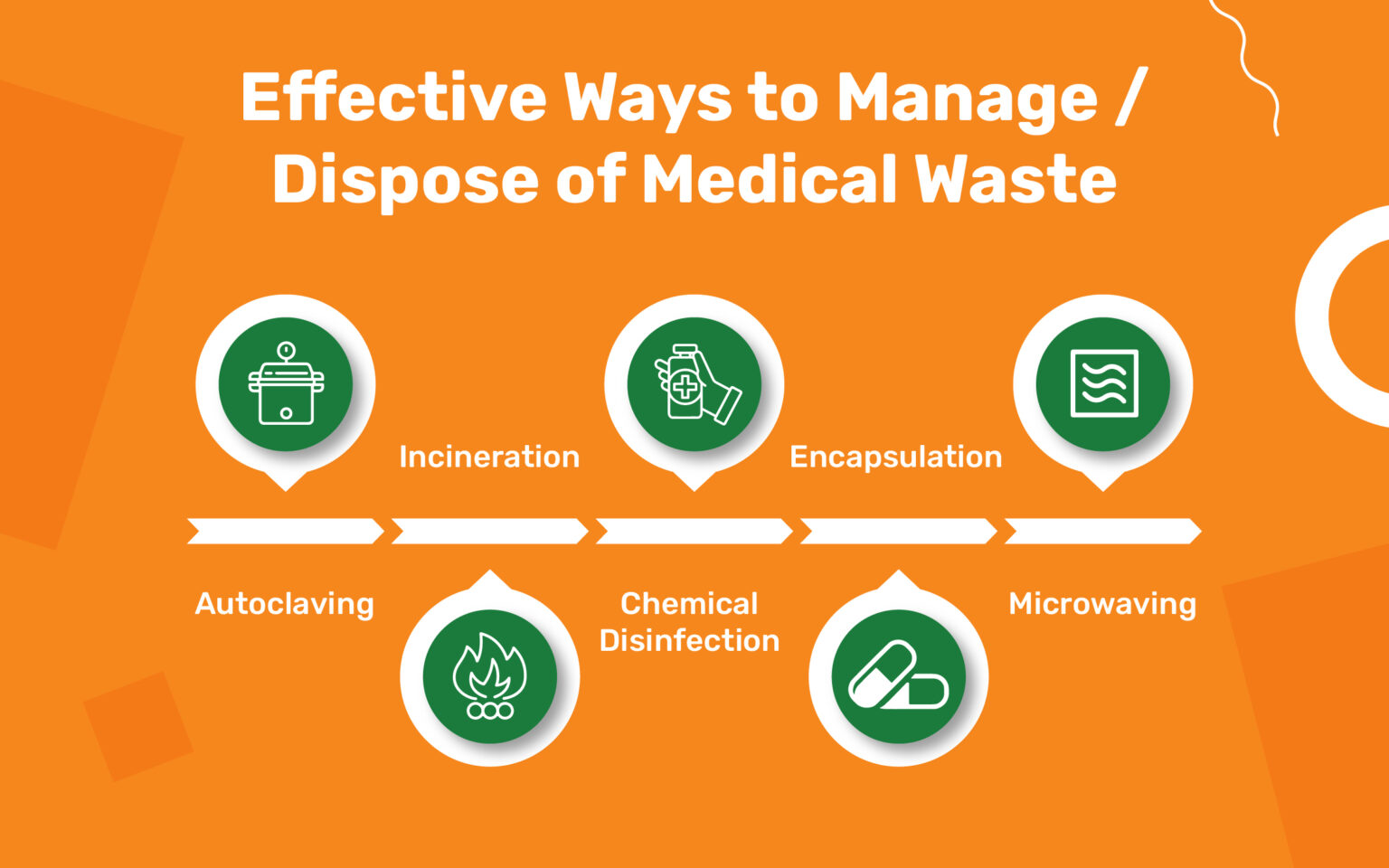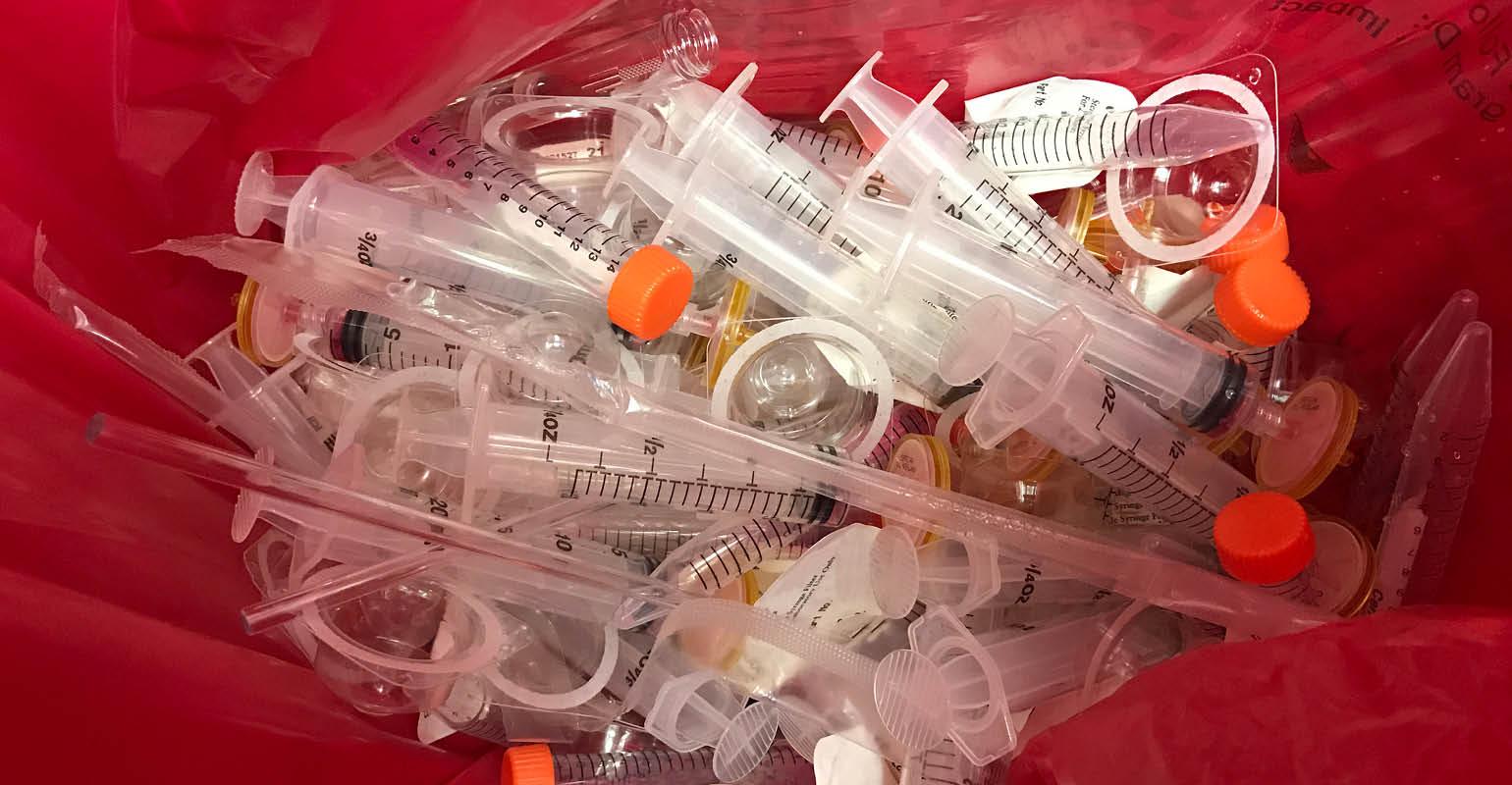Guardians of Cleanliness: Resident Medical Waste Removal Service for Your Assurance
Guardians of Cleanliness: Resident Medical Waste Removal Service for Your Assurance
Blog Article
Stay Ahead of Rules: Expert Suggestions on Medical Waste Disposal
In a world where the medical care market is constantly advancing, it is critical for medical centers to remain in advance of laws when it concerns the proper disposal of clinical waste. With rigid guidelines and frequent regulative adjustments, it can be challenging to browse the complexities of this process. With experienced recommendations, centers can make sure compliance and mitigate risks linked with inappropriate waste disposal. From recognizing the various groups of medical waste to executing the right collection and segregation approaches, this conversation will certainly supply valuable understandings and actionable tips to assist facilities remain in advance of guidelines in the ever-changing landscape of medical garbage disposal.
Understanding Medical Waste Categories
Comprehending medical waste classifications is important for correct disposal and administration in healthcare centers. Medical waste refers to any type of waste generated by medical care tasks that might position a danger to public health or the environment. It is vital to categorize clinical waste precisely to guarantee its secure handling, transport, therapy, and disposal.
There are numerous categories of medical waste that medical care facilities need to be accustomed to. The most usual groups include infectious waste, pathological waste, sharps waste, pharmaceutical waste, and chemical waste. Each category has certain standards and regulations for its proper administration and disposal.
Pathological waste refers to human tissues, body organs, or body components that require special handling and disposal. Drug waste makes up ended, unused, or polluted drugs that require mindful handling and disposal.
Remaining Up-To-Date With Regulatory Adjustments
Remaining present with regulative modifications is crucial for healthcare centers to make certain conformity and appropriate administration of clinical waste disposal. medical waste removal service. With regulations constantly evolving, it is essential for healthcare centers to stay up-to-date to stay clear of charges, fines, and potential injury to the atmosphere and public health
To remain ahead of regulative adjustments, health care centers must develop a system for surveillance and tracking updates. This can be done by subscribing to governing newsletters, attending meetings and workshops, and actively taking part in market associations. Furthermore, facilities need to assign an employee or team in charge of staying educated and distributing details to appropriate stakeholders.
Normal communication with governing companies is additionally essential. Medical care facilities must establish partnerships with local, state, and federal firms to ensure they know any adjustments in policies that might impact their waste administration techniques. This can be done with regular meetings, engagement in public remark periods, and positive involvement with governing firms.
Furthermore, health care centers must consider partnering with waste monitoring companies that focus on medical garbage disposal (medical waste disposal services with WasteX). These business are commonly fluent in the latest policies and can provide support and assistance to ensure compliance
Executing Appropriate Collection and Partition Approaches
To effectively manage medical waste disposal, healthcare facilities should establish appropriate collection and segregation techniques according to regulatory guidelines. Executing these methods ensures the secure handling and disposal of potentially harmful products, secures the atmosphere, and reduces the danger of infections and injuries to healthcare workers and the public.
Correct collection and partition techniques include the use of assigned containers and identifying systems. Medical care facilities must give clearly labeled containers for various kinds of clinical waste, such as sharps, contagious waste, pharmaceutical waste, and non-hazardous waste. These containers ought to be color-coded and clearly significant to stay clear of confusion and promote simple recognition.
Additionally, healthcare centers must train their team on the appropriate procedures for accumulating and setting apart medical waste. This consists of informing them on the various kinds of waste, the suitable containers to make use of, and the relevance of complying with guidelines and policies. Routine training sessions and refresher training courses ought to be performed to ensure that team members remain updated on best techniques.
In addition, medical care facilities need to establish a system for normal collection and disposal of medical waste. This might include partnering with qualified waste administration companies that concentrate on medical garbage disposal. These business will certainly guarantee that the accumulated waste is delivered and gotten rid of in conformity with regulatory demands.
Choosing the Right Disposal Techniques

Incineration Related Site is one of one of the Get More Information most common and efficient techniques for dealing with specific types of medical waste, such as pathological waste and sharps. It includes the controlled combustion of waste at high temperatures, decreasing it to ash. Incineration can launch hazardous contaminants into the air and contribute to air pollution.

Various other disposal methods consist of chemical treatment, microwave therapy, and landfilling. Chemical therapy involves using chemicals to sanitize and neutralize the waste. Microwave therapy utilizes microwave energy to warmth and sanitize the waste. Landfilling entails burying the waste in a marked landfill location (medical waste disposal services with WasteX). Nevertheless, landfilling must be the last option due to the potential danger of contamination to dirt and groundwater.
Ensuring Compliance Through Documentation and Training
After carefully thinking about the proper disposal approaches for clinical waste, medical care centers have to make certain conformity with laws and decrease ecological influence by applying reliable paperwork and training procedures. This step is important in preserving a risk-free and sustainable setting for both health care workers and the public.

Training is just as crucial in ensuring compliance with laws. Healthcare workers who manage clinical waste must obtain suitable training on waste segregation, taking care of, and disposal treatments. This training should cover topics such as the correct use individual safety tools, recognition try this site of various kinds of waste, and the appropriate disposal methods for every waste classification. By supplying comprehensive training, healthcare facilities can empower their staff to make enlightened decisions and reduce the threat of incorrect waste disposal.
Conclusion
In conclusion, staying in advance of laws in clinical garbage disposal is important for health care facilities. medical waste removal near me. Recognizing the various classifications of medical waste, remaining updated with regulatory adjustments, applying appropriate collection and segregation methods, picking the proper disposal approaches, and making certain conformity through documentation and training are all crucial actions. By following these standards, healthcare organizations can properly get rid of and manage of clinical waste in a liable and safe way
From comprehending the various classifications of medical waste to applying the ideal collection and segregation techniques, this discussion will certainly supply actionable tips and useful understandings to assist facilities remain in advance of guidelines in the ever-changing landscape of clinical waste disposal. - medical waste disposal services with WasteX
The most usual groups include contagious waste, pathological waste, sharps waste, pharmaceutical waste, and chemical waste. Health care centers need to provide clearly labeled containers for different types of medical waste, such as sharps, contagious waste, pharmaceutical waste, and non-hazardous waste. Health care centers must develop a thorough system to videotape and track all facets of medical waste disposal, consisting of kinds of waste created, quantities, and disposal methods utilized. Health care workers who deal with medical waste ought to receive suitable training on waste segregation, dealing with, and disposal treatments.
Report this page